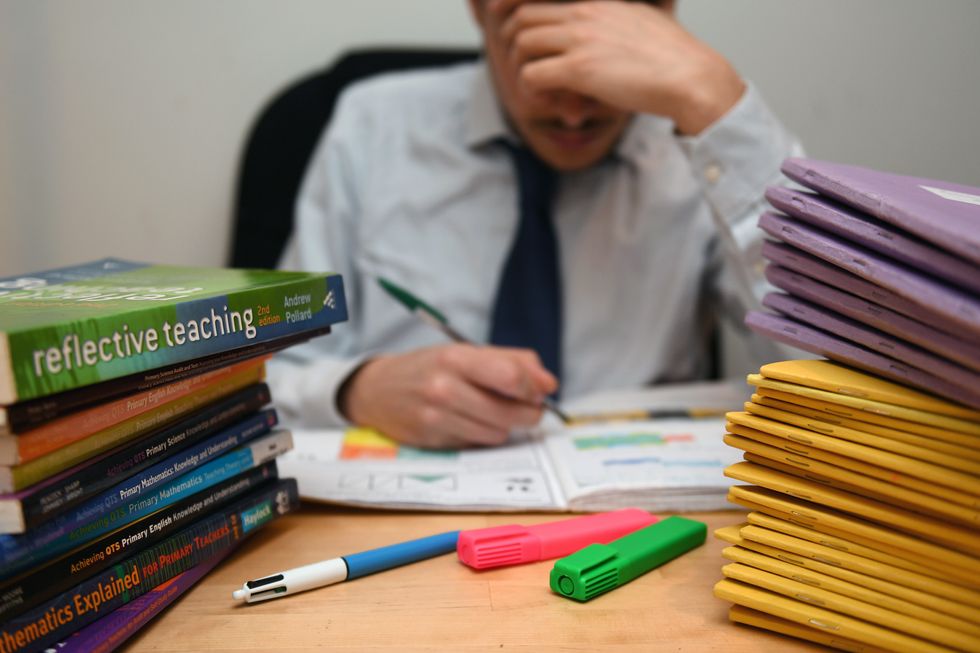One-in-five school pupils DO NOT speak English as their first language

Labour London council promotes social housing 'to people who can't even speak English' |
GB News
One-in-five pupils does not speak English as their first language
Don't Miss
Most Read
Trending on GB News
In over 2,000 schools, English is no longer the first language for the majority of pupils, data obtained by Freedom of Information requests has revealed.
In two primary schools, one in Tower Hamlets and the other in Kirklees, West Yorkshire, no children have English as their native tongue.
The statistics, obtained by The Daily Mail, showed that nine-in-ten pupils across 107 schools do not speak English at home.
At a school in Tower Hamlets, 92 per cent of the pupils speak Bengali as their mother tongue, with none of the children speaking only English at home.
 One in five pupils do not speak English as their native tongue | GETTY
One in five pupils do not speak English as their native tongue | GETTYAt Tottenhall Infant School in Enfield, nearly one-in-five kids speak Albanian.
Meanwhile, over half of students speak Arabic as their native tongue at Sheffield's Netherthorpe Primary School.
In total, English is no longer the first language for the majority of children at 2,039 schools.
And 1.8 million pupils, approximately one-in-five students, do not have English as their first language nationwide.
LATEST DEVELOPMENTS

Teachers have previously said schools are under increasing pressure from mass immigration
| GETTYOver the past 10 years, that figure has soared by 700,000 pupils, due to the rapid increase in immigration.
Centre of Migration Control's Robert Bates called it a "great shame that we have reached this point, and it is evidence of successive Governments failing to properly address assimilation issues".
Speaking to MailOnline, Bates said: "Multi-language classrooms are hugely problematic. They inevitably sap the precious time of teachers who are forced to devote additional attention to those with a weaker grasp of the language at the expense of those who only speak English.
"The resources used will be lowest-common-denominator teaching devices that provide little for the individuals to excel."

Some 1.8million school pupils do not speak English as their first language
| GettyBates explained that it will also "foster long-term division" and provide few incentives for those who can't speak English to learn the language.
He added: "'It is time for a sink or swim approach in which state funding for translation costs are stripped across the board, encouraging adult migrants and parents alike to devote greater attention to improving this pretty basic skill."
Experts worry that kids who are not taught English before they go to school are less likely to do well.
Some teachers have previously said they have had to amend their lesson plans to cater for pupils who cannot speak English as their first language, placing them under mounting pressure.

Teachers have had to amend their lesson plans because of the increase in non-native English speakers
| PAIan Mansfield, head of education at Policy Exchange, said: "These statistics demonstrate the very real pressure that mass immigration places on public services."
CEO at the think-tank Civitas, Jim McConalogue, insisted that the acquisition of the English language must be prioritised.
He stated: "You are effectively seeing the proportion of school-age pupils in England speaking English as an additional language continuing to steadily increase over time.
"There are some short-term challenges that the Department of Education need to address for students who speak English as an additional language, as a lack of emphasis on English language provision can have a detrimental impact on both these students themselves and their classmates.
"Many policymakers talk about diversity and inclusion, but relatively little is being done to support English language acquisition."
More From GB News










